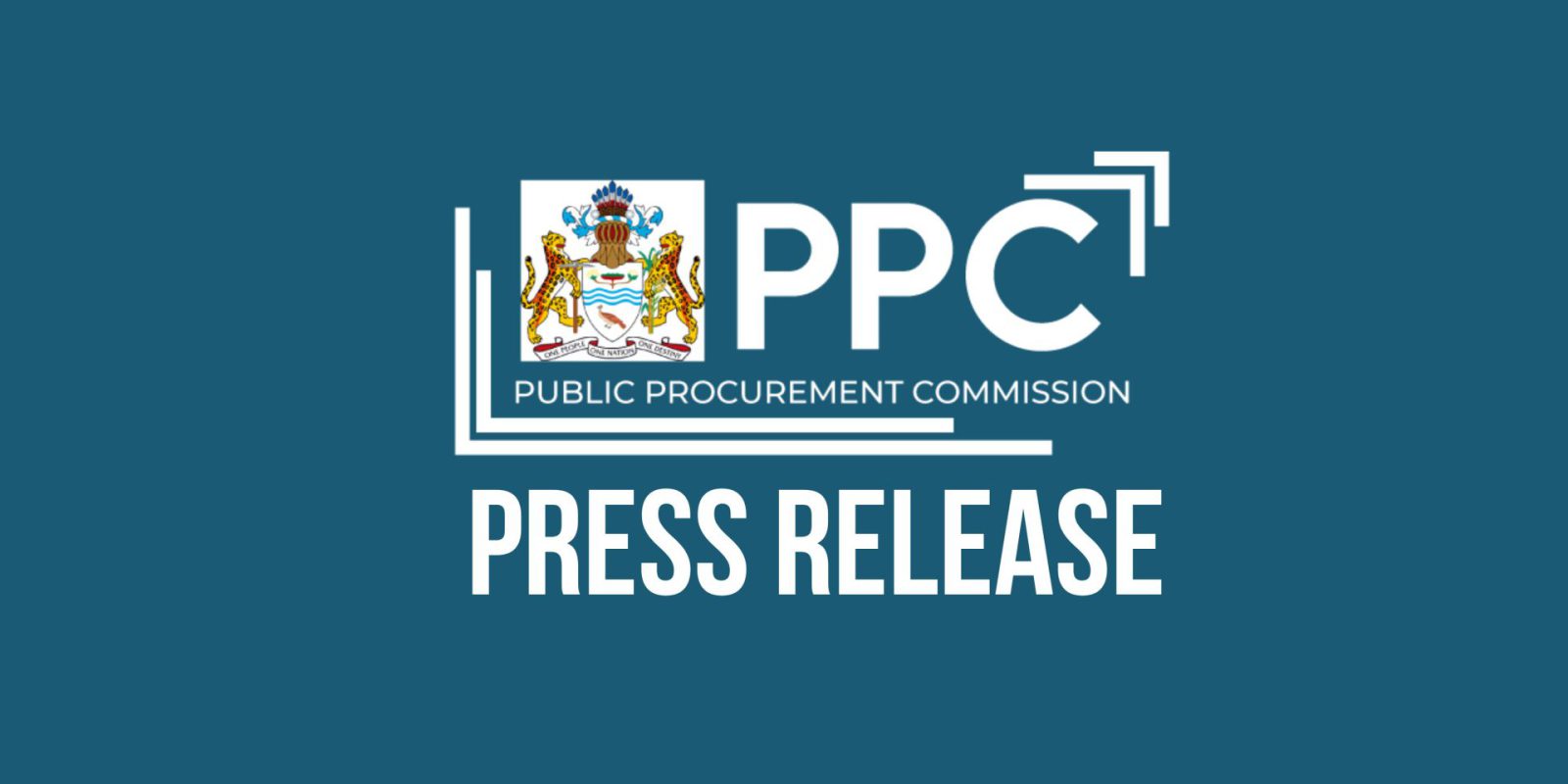PPC Addresses Misrepresentation by Kaieteur News on Tender Board Minutes
PPC Addresses Misrepresentation by Kaieteur News on Tender Board Minutes

The Public Procurement Commission (PPC) takes note of a Kaieteur News article dated November 20, 2025, which asserts that the Commission “slams tender boards for hiding procurement minutes.” While public scrutiny of the procurement system is welcome, this characterisation misrepresents the findings and intent of the Commission’s 2024–2025 Interim Report.
First, the Commission emphasises that there is no express statutory requirement in the Procurement Act, Cap. 73:05, obliging procuring entities to publish their tender-opening minutes. The Act does, however, require entities to provide such minutes when formally requested, which forms part of the Commission’s monitoring methodology. To be clear, the Commission did not allege, implicitly or explicitly, that tender boards are “hiding” minutes. The absence of submissions was described as a procedural deficiency, not misconduct. This distinction matters, particularly in a governance environment where accuracy sustains trust in oversight institutions.
The Commission’s findings reflect this nuance. As was the case in prior years, several Regional, Ministerial, Departmental, and Agency Tender Boards did not routinely publish minutes of tender openings. Publication is not legally required, and for that reason the Commission made formal requests to entities to submit their minutes, both as a monitoring tool and a means of strengthening transparency. Some responded; others did not. But at no point did the Commission attribute motive, intention, or concealment. It simply recorded the administrative reality.
In the 2024–2025 reporting period, monitoring again revealed partial adherence. For instance, in the prior full reporting cycle, seven out of ten Regional Democratic Councils submitted minutes, representing a 70% compliance rate, while fourteen out of twenty Ministries submitted their minutes, a notable improvement compared to previous years. Several ministries even sought formal extensions, an indication of willingness, not refusal. These remain important contextual facts that demonstrate evolving compliance rather than obstruction.
Where submissions were not received during the interim period of July 7, 2024 to March 31, 2025, the Commission stated the position plainly, “no further submissions have been received.” The figures reflected in the Report correspond to an interim, nine-month reporting window, not a full operational year. Therefore, the number of minutes received at that point could not surpass the totals recorded in the previous complete cycle. The Report captured the position as it existed at the time, during a shortened reporting period shaped by scheduling constraints and administrative turnaround times.
Importantly, the Commission has already observed improved cooperation following renewed engagements after the reporting period, with several entities submitting their minutes as part of ongoing compliance efforts. This development, though occurring after the cut-off date for the 2024–2025 Interim Report, reflects the continued effectiveness of the Commission’s outreach.
The PPC maintains that the publication of minutes is valuable because it provides contemporaneous records, strengthens the verification of contract awards, reinforces audit trails, deters irregularities, and allows the public to witness the mechanics of procurement with clarity. However, its broader point is a systemic one – the Commission seeks to cultivate a procurement environment rooted in transparency and compliance, consistent with its constitutional duty under Article 212AA(1)(b) to promote awareness of the rules, procedures and special requirements of the procurement process.
In keeping with this mandate, the Commission’s reports are not instruments of censure or accusation. They are designed as educational and diagnostic tools that present the state of the procurement system, identify procedural irregularities, and highlight areas where additional institutional strengthening is needed. Through these reports, procuring entities are better able to grasp their statutory obligations, adjust internal mechanisms, and progress toward deeper compliance and accountability.
The Commission, through the continued work of its Secretariat, remains committed to constructive engagement, systemic enhancement, fairness and transparency.
21/11/2025
